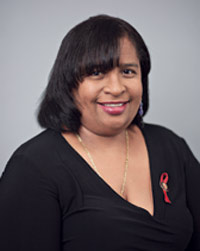 When Lillian Anglada, 53, learned she had hepatitis C, a deep sense of shock set in. After living with HIV for over 20 years, Anglada had made peace with those medications and side effects. She understood HIV treatment. She had learned to navigate hospitals and doctors and all areas of her life—personal, social and professional. But a coinfection?
When Lillian Anglada, 53, learned she had hepatitis C, a deep sense of shock set in. After living with HIV for over 20 years, Anglada had made peace with those medications and side effects. She understood HIV treatment. She had learned to navigate hospitals and doctors and all areas of her life—personal, social and professional. But a coinfection?
“I was devastated,” New Yorker Anglada says. “I needed time to process it.”
Her process was honed by what she had learned from dealing with her HIV diagnosis. “First I needed to find a doctor and health care team I was comfortable with. So I went to meetings on hep C and talked to friends who have hepatitis.”
She also assembled a support system—family, friends and colleagues.
After six months, Anglada was ready to start treatment for her new virus: a course of twice daily ribavirin pills plus once-a-week injections of pegylated interferon. She also switched her HIV regimen to better manage both conditions.
“I was worried about side effects—I’m prone to them. You read that small print? I’m the one who gets all that. But I had none,” Anglada says. “My process was to go to work on Thursday, come home, have the injection and go to sleep. I would wake up the next day feeling fine.”
Four months later, though, Anglada’s doctor told her the treatment wasn’t saving her liver. Her cirrhosis was too advanced, and she would need a liver transplant. She stopped her hep C treatment (though not her HIV meds) and signed onto a liver transplant list.
For now, Anglada continues to manage her liver health naturally (no alcohol, cigarettes or drugs). If her name comes up for a new liver, she will accept. She relishes her work as a community activist and consultant and appreciates her supportive network of family and friends.
Her tips on how to manage HIV/HCV coinfection are clear: “Get a good doctor and keep communication open. Control your stress, eat well, get good sleep. And enjoy life.”

Thinkstock






Comments
Comments